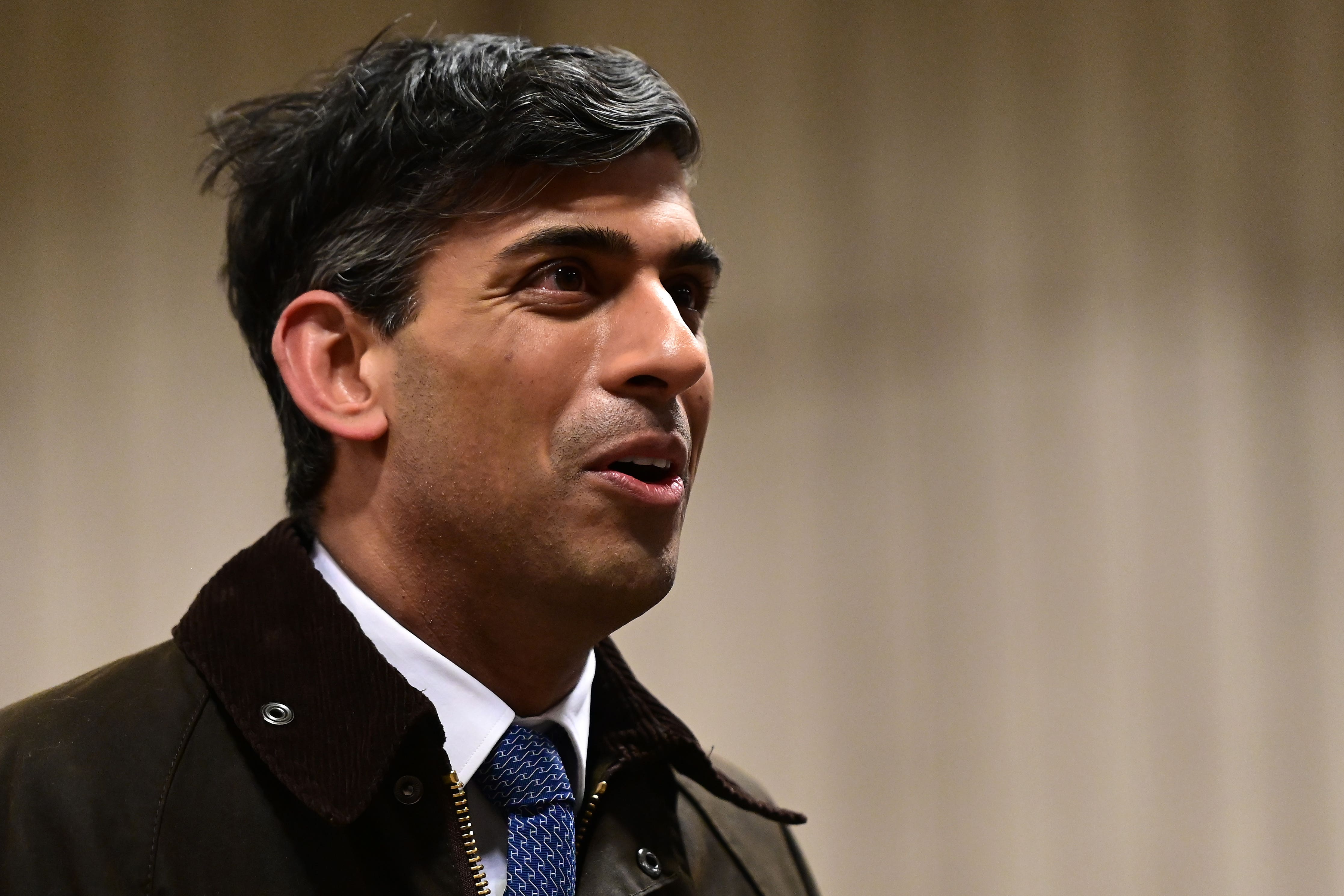Sunak’s change to definition of sex is ‘pure transphobia’, former EHRC legal boss
Grey Collier, a former legal director at the Equality and Human Rights Commission, said planned changes to the definition of sex would are ‘nonsense on stilts’

Your support helps us to tell the story
From reproductive rights to climate change to Big Tech, The Independent is on the ground when the story is developing. Whether it's investigating the financials of Elon Musk's pro-Trump PAC or producing our latest documentary, 'The A Word', which shines a light on the American women fighting for reproductive rights, we know how important it is to parse out the facts from the messaging.
At such a critical moment in US history, we need reporters on the ground. Your donation allows us to keep sending journalists to speak to both sides of the story.
The Independent is trusted by Americans across the entire political spectrum. And unlike many other quality news outlets, we choose not to lock Americans out of our reporting and analysis with paywalls. We believe quality journalism should be available to everyone, paid for by those who can afford it.
Your support makes all the difference.Rishi Sunak’s planned shakeup of the definition of sex is “pure transphobia”, a former legal director of the equalities watchdog has claimed.
The Prime Minister will consider official advice that says changing the definition of sex in law would create greater “clarity” around women-only spaces.
But Grey Collier, a former legal director at the Equality and Human Rights Commission (EHRC), said the proposed change is “nonsense on stilts”.
Mr Collier, now advocacy director at human rights group Liberty, said Mr Sunak’s changes were “based on misleading and transphobic assumptions”. He added that they were “legally illiterate, unworkable and just another way of using trans people’s actual lives as a pawn in the culture wars”.
A review by the EHRC concluded that amending the Equality Act 2010 to specifically refer to “biological sex” merits further consideration. The government had asked the watchdog to consider the pros and cons of such a change.
The EHRC found “no straightforward balance”, but said that defining sex as biological “would bring greater legal clarity in eight areas”. These include hospital wards where the EHRC said that a “biological definition of sex would make it simpler to make a women’s-only ward a space for biological women”.
When it came to sport, it would mean that organisers could exclude trans women without having to show the move was necessary because of fairness or safety.
Sources close to Rishi Sunak said he “remains committed” to a campaign pledge to reinforce rights around biological sex and would support equalities minister Kemi Badenoch, who called for the review, in “taking that work forward”.
But writing on Twitter, Mr Collier said the proposed changes were “cruel, unworkable, dangerous and would exclude trans people from day to day life”.
“The proposals do not address problems that arise in real life – only in the minds of some fanatics who have decided to dedicate their lives to destroying the lives of a tiny proportion of the population,” Mr Collier said.
Mr Sunak’s plans also reignited the Labour civil war over trans rights, with the party split over the reforms. Labour justice spokesman Steve Reed agreed there was a need to clarify the Equality Act, as proposed by the Equality and Human Rights Commission watchdog on Monday.
He told Times Radio: ‘The legislation as we currently have is unclear. It’s ambiguous as to what is meant by sex, as to whether that would be a biological sex or not. And I think it’s absolutely right that this needs to be clarified.’
But backbench MP Nadia Whittom said the proposals were “an attack on the limited rights and protections that trans people currently have”.
Mr Sunak told the Daily Mail: “We should have enormous compassion and understanding for anybody who is thinking about their gender and identity. But it’s important that we also protect and support and ensure women’s rights.”



Join our commenting forum
Join thought-provoking conversations, follow other Independent readers and see their replies
Comments